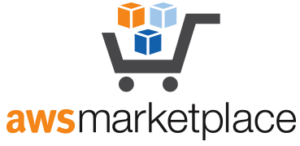Welcome to this week’s Weekly News Roundup from the world of AWS and Technology. Some great new releases and updates this week, including the launch of CodeGuru inconsistency detection, EKS Anywhere becoming Generally Available, EventBridge launching cross-account schema discovery, Systems Manager launching external Calendar support and more.
Amazon Neptune now supports searching by non-string data types
https://aws.amazon.com/about-aws/whats-new/2021/09/new-capabilities-amazon-neptune/
Amazon Neptune has added new features to search the built-in indexing by new data types such as numbers and dates as well s the full-text search currently supported
Amazon EventBridge launches cross-account schema discovery
Amazon EventBridge has launched support for discovering event schema on other linked accounts to automatically register them in the EventBridge Schema register, to allow you to programmatically use the event schema in your integrations
Amazon CodeGuru reviewer launches support for inconsistency detection in code
https://aws.amazon.com/about-aws/whats-new/2021/09/amazon-codeguru-reviewer-inconsistency-detectors/
Amazon CodeGuru code reviewer has launched a new feature that can detect inconsistencies in repositories, such as a missing check that would normally be present, typos and missing API calls.
AWS Systems Manager launches support for integrating third-party calendars
https://aws.amazon.com/about-aws/whats-new/2021/09/aws-systems-calender-third-party-imports/
AWS Systems Manager has launched support for importing third-party calendars to allow users to see events that might affect particular instances, such as knowing you have a promotion coming up that will increase traffic, so maintenance during this period should be avoided.
Amazon Detective launches Splunk Integration
https://aws.amazon.com/about-aws/whats-new/2021/09/amazon-detective-splunk-integration/
Amazone Detective has launched support for a Splunk integration as part of the Splunk Trumpet Project that allows you to pass Amazon GuardDuty findings into splunk and create a profile to get at the root cause of issues quicker
Amazon EKS Anywhere is now Generally Available
Amazon EKS Anywhere has now launched into General Availability out of preview. This service allows for Kubernetes clusters to be created and managed on-premise while operated from the AWS management console
AWS Marketplace now supports AMI Aliases
https://aws.amazon.com/about-aws/whats-new/2021/09/aws-marketplace-ami-products/
AWS Marketplace now supports aliases for AMIs purchased on the Marketplace. This allows a unique identifier to be used in the deployment process and that ID will resolve to the region-specific AMI for that product.
Amazon ElasticSearch service is now Amazon OpenSearch and supports OpenSearch 10
Amazon ElasticSearch has now rebranded to Amazon OpenSearch and now supports OpenSearch 10. This release does require one update to any existing Service Control Policies to allow the new naming convention. API methods have been added for Open Search, but existing calls to elastic search will continue to work.
Amazon OpenSearch Service now support Dashboard Notebooks
Amazon OpenSearch (previously Amazon ElasticSearch as per above) adds support for OpenSearch Dashboards Notebooks, allowing users to interactively and collaboratively develop reporting backed by live data and queries.
Amazon RDS SQL Server now supports MSDTC JDBC XA distributed transactions
Amazon RDS SQL Server now supports the MSDTC JDBC XA transaction type. This means customers using SQL Server 2017 CU16+ and SQL Server 2019 can now enable the XA option and start using distributed transactions from the JDBC connection.
Amazon Lex now supports the Korean language
https://aws.amazon.com/about-aws/whats-new/2021/09/amazon-lex-launches-support-korean/
Amazon Lex has added support for the Korean language in its Lex conversation service.
Amazon EC2 instances get network bandwidth boost
https://aws.amazon.com/about-aws/whats-new/2021/09/amazon-ec2-increases-instance-network-bandwith/
Amazon EC2 has increased instance bandwidth from within an AWS Region towards an Internet Gateway, Direct Connect or another region. Previously capped at 5 Gbps per instance, current-generation EC2 instances that have 32 vCPUs or higher can now drive higher bandwidth of up to 50% of instance network bandwidth to these destinations. For e.g. c5n.9xlarge has an instance network bandwidth of 50 Gbps; with this launch, it can drive 25 Gbps to Internet Gateway, Direct Connect and other AWS regions.










